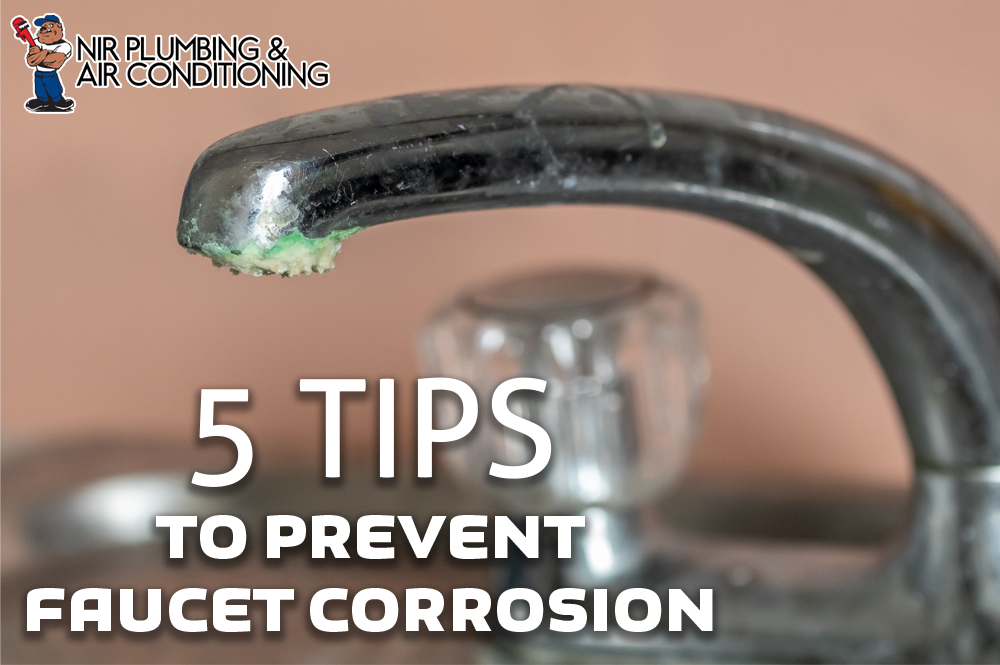[vc_row][vc_column width=”1/1″][vc_column_text]
Overview: Corrosion is one of the deadliest diseases faucets face, so learn how to prevent faucet corrosion or get rid of it
You’re searching for tips to prevent faucet corrosion, which means that the white, chalky substance has already made its way to your bathroom faucets and shower-heads. Tap water falls into different categories, depending on your residential setup, but hard water is one of the most irritating problems homeowners deal with.
Hard water doesn’t present itself out of nowhere; it comes from rainwater that’s soft before it hits the ground then paves its way to the city system where it minerals from the ground get mixed in. These minerals result in corrosion.
While hard water isn’t very hard for your overall health, it’s not healthy for the longevity of your home appliances, faucets included. Let’s consider h ow to prevent corrosion from building up on your faucets.
1. Install a Filtration System:
Micro-biologically Induced Corrosion (MIC) happens when metals are exposed to water. To prevent MIC and other faucet problems, install a water filtration system. A sound water filtration system will absorb the extra minerals.
2. Keep the Faucet Dry:
We know, we know… this sounds a unusual. But it’s doable! You can fix the corrosion issue problem before it’s an issue by using things like kitchen towels to clean up after water use.
Deposits form hard water when they’re left to sit and dry up. Whenever you use the faucet, dry the area completely. It may sound like an exertion to dry the faucet up every single time you use it, but doing this regularly will help prevent hard water and will ultimately save you time and a huge amount of money in the long run. Besides, you’ll have the added bonus of sparkly clean fixtures at your disposal.
3. Clean Your Aerators Regularly:
Once the scale starts building up on a fixture, it could be difficult to clean it, so regular cleaning is a must! Otherwise, if it continues to grow, it’ll affect more than your faucet (hello… your pocket). We recommend cleaning weekly with a simple homemade solution of 50-50 diluted white vinegar and water.
4. Purchase a Branded Faucet:
We always emphasize high-quality faucets and pipes for your house, as these are investments that one should be mindful of long-term. When you buy a low cost faucet, it may not pay you off, and could cause more damage than help.
5. Don’t Go for Chemical-Based Cleaners:
You’ve been cleaning the faucets regularly – that’s cool. But were you using market-based products to save time and energy? This might be the reason why your faucet looks colorless … it’s high time to turn towards the DIY tricks to clean the faucets effectively and avoid discoloration. We mentioned this previously, but white vinegar is the ideal rinsing element for cleaning appliances.
Facing Hard Water Issues? How to Tell and What to Do:
You’ll know you’re experiencing hard water when the water begins to taste different than the usual. You may also notice spotty dishes and glasses after rinsing and drying, clothes that don’t rinse well, or maybe your tastes strange despite changing brands.
While some people opt for water softeners – undoubtedly a fair investment – cleaning faucets every now and then will save you from this hassle. But installing a water softener will bring your home appliances back to life.
Tips to Address Faucet Corrosion:
-
Mix vinegar with water and soak a piece of cloth into it. You may apply this mixture directly on the faucet or you can pour it into the corroded area. Let it sit for a few minutes then wash it, and (a reminder) dry the area.
-
If the corrosion is deep, it’s time for you to change the narrative — and by that, we mean the faucet. Replacing a corroded faucet is a smart decision. So if you’re a homeowner who’s looking for a way to upgrade the style or add cosmetic enhancement to your home, now is the time.
In Summary:
To prevent faucet corrosion once and for all, consider opting for a water softener to filter out the minerals, the main cause behind the corrosion. The team at NIR Plumbing can assist you with this task! Not only will we professionally remove faucet corrosion, but we can help with installing new fixtures. Reach out to us for all your plumbing needs![/vc_column_text][/vc_column][/vc_row]


